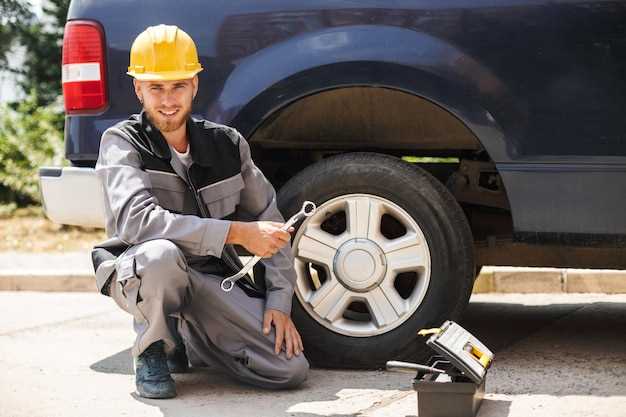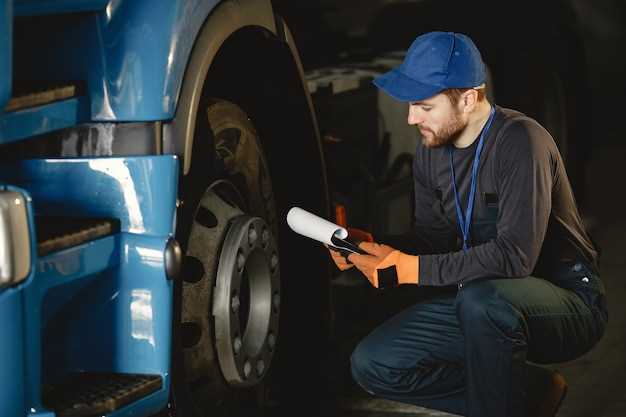
When it comes to ensuring a safe towing experience, troubleshooting common trailer brake problems is essential. A well-functioning braking system not only protects your vehicle and trailer but also enhances the safety of everyone on the road. Trailer brakes play a crucial role in stopping your vehicle effectively, especially under heavy loads.
Identifying issues with trailer brakes can often be daunting, but understanding the symptoms and potential causes can simplify the process. Common problems may include inconsistent braking, brake lights that fail to activate, or unusual noises when braking. By addressing these concerns promptly, you can avoid more significant hazards and maintain your equipment in peak condition.
This article will guide you through the most frequent trailer brake problems, offering practical solutions and preventative tips. Whether you’re a seasoned trailer owner or a newcomer to towing, gaining insights into troubleshooting techniques will empower you to keep your trailer brakes in optimal working order.
Identifying Signs of Brake Failure in Trailers

Recognizing the signs of brake failure in trailers is crucial for ensuring safety on the road. One of the primary symptoms is a decrease in braking performance. If you notice that your trailer takes longer to stop or requires more force to engage the brakes, this may indicate a problem.
Another common sign is unusual noises. Squeaking, grinding, or clunking sounds while braking can suggest worn brake pads, damaged rotors, or other mechanical issues. It’s essential to pay attention to these sounds, as they can help in troubleshooting potential brake failure.
Inconsistent braking response is another indicator. If the trailer’s brakes engage unevenly or feel soft when pressed, it could be a sign of air in the brake lines, a leak in the hydraulic system, or malfunctioning brake components. Regular inspection can help catch these issues early.
Visual inspection can also reveal signs of brake failure. Look for signs of wear on brake pads, uneven wear patterns on tires, or brake fluid leaks under the trailer. Corrosion or damage to brake lines can also signal potential failures that need addressing.
Finally, observing how the trailer behaves on the road can provide significant insights. If your trailer sways, pulls to one side while braking, or becomes unstable, it is a clear warning sign that the brake system may be compromised. Immediate troubleshooting is advised in such scenarios to prevent further safety risks.
Steps to Diagnose Electrical Issues with Trailer Brakes
Begin troubleshooting by visually inspecting the entire brake system, focusing on the wiring connections. Look for frayed wires, loose connections, or signs of corrosion, as these can disrupt the electrical flow.
Next, check the brake controller settings in the towing vehicle. Ensure that the gain is set correctly and that the controller is functioning. Use a digital multimeter to test for proper voltage output when the brakes are applied.
If the brake controller appears to be working properly, examine the 7-pin connector on both the trailer and the tow vehicle. Test the pins for continuity and inspect for any damage. A multimeter can help determine if power is reaching the trailer brakes.
Move on to the trailer’s brake assemblies. Disconnect the electrical wires from each brake to isolate any potential issues. It’s crucial to test the brakes individually for functionality. Use the multimeter to measure resistance across the brake magnet.
If the brake magnets are not receiving power, troubleshoot the wiring leading to them. Check for breaks, short circuits, or interruptions in the wiring that could cause a loss of current.
Finally, if all electrical components appear intact but the brakes still do not function, consider checking the ground connections. Poor grounding can lead to erratic behavior or complete brake failure. Ensure all ground points are clean and secure.
Common Mechanical Problems and Their Solutions

Mechanical issues are often the root cause of trailer brake problems. Identifying and resolving these issues can enhance safety and prolong the lifespan of your trailer. Here are some common mechanical problems and their troubleshooting solutions.
One frequent issue is the wear and tear of brake components. Over time, brake pads and shoes can become worn down, leading to reduced braking efficiency. Regularly inspect these components for signs of wear and replace them as needed to ensure optimal performance.
Another common problem is misalignment of the brake system. When the brake shoes are not aligned correctly with the drum, it can result in uneven braking and increased wear. To troubleshoot, check the alignment by examining the positioning of the brake assemblies. Adjust them as necessary for even contact across the surface.
Brake fluid leaks can also lead to mechanical failure. Leaks typically occur at the master cylinder or brake lines, causing a loss of hydraulic pressure. Regularly inspect the brake lines and connections for signs of fluid leakage. If any leaks are found, replace the damaged components to restore proper function.
Additionally, rust and corrosion can affect the brake system’s performance. Metal components are susceptible to corrosion, especially in environments with humidity or exposure to road salt. Keep the brake system clean and apply protective coatings to prevent rust buildup, ensuring all components function smoothly.
Lastly, inadequate or excessive brake adjustment can cause problems. If the brakes are too tight, they may drag, causing unnecessary wear. Conversely, if they are too loose, braking effectiveness is compromised. Regularly check the adjustment settings and make necessary adjustments to maintain the proper balance and functionality.





